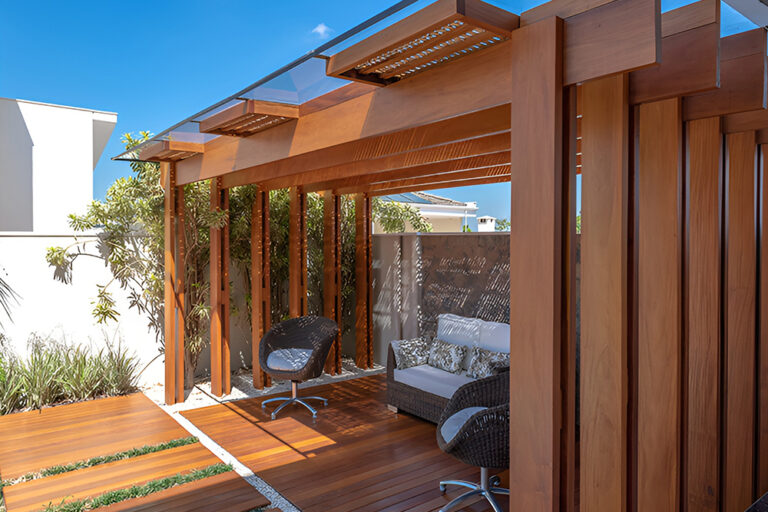
Due Care – It’s the Law

Throughout time, the timber industry’s sourcing methods have faced growing scrutiny amid global discussions on environmental awareness and sustainability. Illegal logging not only threatens forests but also worsens climate change and diminishes biodiversity. To tackle this issue, the United States introduced the Lacey Act, a law that regulates timber and plant product exports, which will be the focus of my blog today.
Understanding the U.S. Lacey Act
The U.S. Lacey Act, passed in 1900, is the country’s oldest environmental and wildlife protection law. Its focus has broadened over time to encompass a wider variety of plants and plant products, with the main objectives being the suppression of illicit logging and the advancement of sustainable forestry methods. The Act forbids the acquisition, sale, importation, exportation, transportation, and procurement of plants and their byproducts obtained illegally, including wood and wood products. Anyone dealing in wood products is required to source their products with “Due Care,” whether sourced domestically or from outside the United States.
At this point, the meaning of “Due Care” is subjective and defined by the U.S. Department of Agriculture and the U.S. Department of Justice on a case-by-case basis. In essence, it mandates that businesses or individuals who deal in wood products use “Due Care” to confirm the legitimacy of the wood products’ source and legal harvesting methods. The federal government is free to interpret “Due Care” however they see fit once a review is initiated.
The 2008 amendments to the Lacey Act brought about some significant changes, including the outlawing of the importation of wood and wood products harvested illegally into the United States or sourced domestically. To ensure transparency and traceability throughout the supply chain, importers of certain plants and plant products are required to declare the species and the country of harvest. It collaborates with foreign governments on their forestry laws and encompasses the U.S. Foreign Corrupt Practices Act and U.S. Forced Labor Laws.
The federal government is entitled to seize any materials found to have been sourced in violation of the U.S Lacey Act. This is in addition to the expenses incurred by the legal team in processing the infraction.
Essential Standards for Lumber Harvested Lawfully
- Verification of Origin: It is necessary to confirm the lumber’s origin to abide by the Lacey Act. To prove legal compliance, readily available documentation attesting to the species and the harvesting nation should be produced.
- Certification Schemes: Several certification schemes, including the Forest Stewardship Council (FSC) and the Program for the Endorsement of Forest Certification (PEFC) or Uniflorest as Verification of Legal Origin Programs are essential. The wood’s ethical forest management is guaranteed by these certifications.
- Transparency of the Supply Chain: Ensuring the legality of timber requires a transparent supply chain. Businesses ought to track the path taken by their wood products from the forest to the marketplace, offering insight into every stage of the manufacturing procedure.
The Role of Tropical Forest Products
Mindful of the U.S. Lacey Act, Tropical Forest Products sincerely focuses on protecting our customers. Strict environmental regulations, such as the FSC guidelines and the Lacey Act, are followed when sourcing our wood, which comes only from well-managed forests. To advance sustainability, we have developed our own Due Care initiative— Legal Lumber™.
One way we demonstrate our love for our work is by advocating for the preservation of forests and the communities that rely on them. For this reason, we developed our market-leading programs to confirm the legality of our timber using a chain-of-custody auditing procedure that goes from the forest floor to your door. By leveraging the Legal Lumber brand to highlight the advantages of natural wood products’ environmental life cycle, Tropical Forest Products has gone one step further. Products that carry the Legal Lumber brand must adhere to a number of guidelines, rules, and specifications regarding controlled wood, chain of custody, life cycle impact, and Due Care.
Legal Lumber™ is also an educational brand that advocates the life cycle environmental benefits associated with wood products through research and education.
Tropical Forest Products offers a large selection of FSC-certified products and is a Chain of Custody Stakeholder in the Forest Stewardship Council as well as other organizations. Furthermore, wherever such services are offered, Tropical Forest Products uses other third-party NGOs to audit all legal documentation from the forest floor to our door. Although there is a cost involved, we feel that it is our responsibility to prepare for any potential interpretation of the term “Due Care” by the federal government of the United States and to take proactive steps to meet that standard.
Timber professionals can take “Due Care” courses offered by the International Wood Products Association to better understand their responsibilities under the U.S. Lacey Act. Personally, I hold certifications from all three — IWPA Audits for the Wood Trade Professional Certification, IWPA Advanced Compliance Certification, and IWPA Due Diligence Training Certification. I have developed the Legal Lumber Brand and the Tropical Forest Products “Due Care” Compliance initiatives with the help of this training, which was extremely helpful to me in my capacity as Director of Environmental Compliance.
Conclusion
The selection of timber is crucial in the endeavor to create a future that is more ecologically conscious and sustainable. In accordance with the U.S. Lacey Act, Tropical Forest Products only sources verified legal lumber , which helps to preserve forests, biodiversity, and the planet’s general health. To learn more about us, get in touch!

About the Author
Meet Brian Lotz, General Manager of US Operations, Technical and Environmental Compliance Director for Tropical Forest Products and industry Influencer. With over 40 years of experience in the exotic hardwood business, Brian brings a wealth of knowledge that enhances the company’s commitment to sustainability within the imported and domestic hardwood industry. Brian was responsible for spearheading the 38th FSC Chain of Custody Certification for his company in North America, the Fields to Forests Tropical Reforestation Program and the TFP Legal Lumber “Due Care” Compliance Program. As we explore the impact of super-durable tropical hardwoods on multiple industries, Brian’s insight offers a unique lens, underscoring the harmonious interplay between skillful artisanship, biophilic design and sustainable ethos.





CATEGORIES
Recent Post


Garapa Decking vs. IPE Wood Decking – Which is Right for You?
tags

Receive The Latest News
Subscribe To Our Weekly Newsletter

- OUR LOCATIONS
- CONTACT US
- SIGN UP
Stay informed about the latest offers, products and sales
- FIND US
- CONTACT US
- SIGN UP



